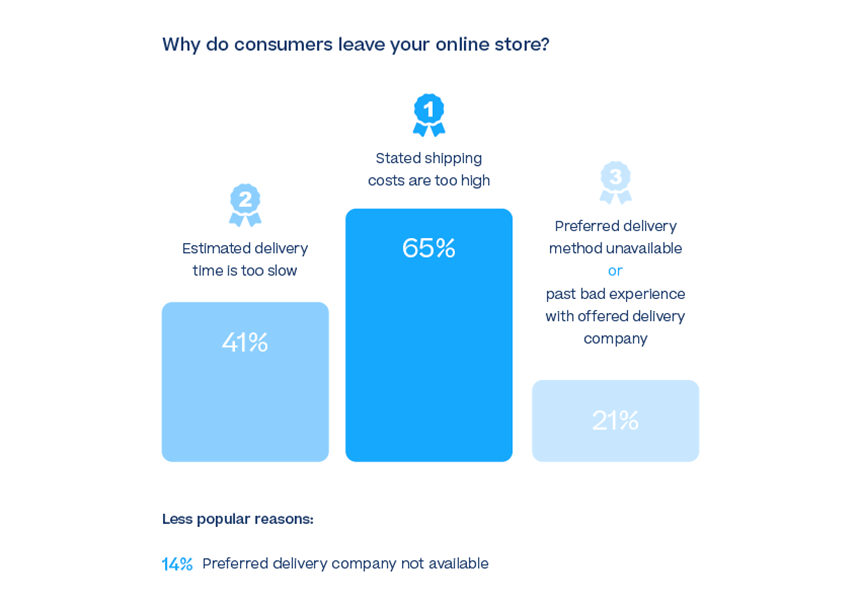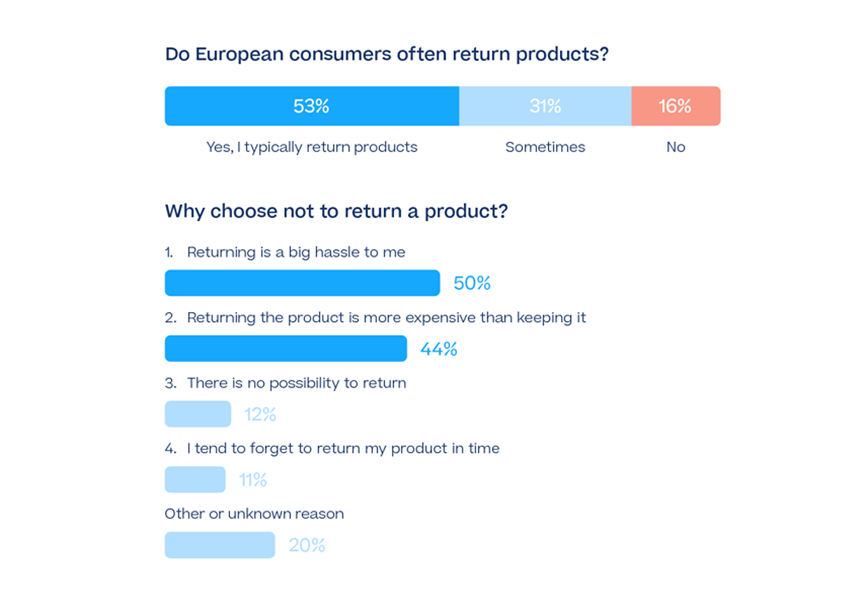It’s never too early to start planning for peak season. In just a few short weeks in the last months of the year, online shoppers spend billions of dollars worldwide. Retailers need to plan carefully to stand out in a sea of deals and bargains and claim some market share.
What is peak season in ecommerce?
Peak season in ecommerce refers to the busiest shopping period of the year, typically spanning the last quarter, when multiple major online shopping events occur.
These dates include Black Friday, Cyber Monday, Singles Day, and the holiday shopping rush leading up to Christmas.
During peak season, shoppers are on the hunt for the best deals, gifts, and last-minute buys, which leads to a big jump in online sales. For ecommerce brands and marketplace sellers, it’s the perfect time to boost revenue.
How big is peak season?
In 2023, global ecommerce sales reached approximately $5.8 trillion, showing a slight increase from the previous year. November and December continued to be peak months, with significant sales spikes due to holiday shopping events. During these two months, global online sales hit $1.17 trillion, which is an increase from the $1.14 trillion reported for the same period in 2022.
Amazon maintained its dominance in the ecommerce market, accounting for around 37.8% of sales. The success of Amazon’s Prime Days, alongside other major shopping events like Black Friday and Cyber Monday, significantly contributed to this figure.
To capitalize on the recurring peak season, you should start preparing early by optimizing your marketing strategies, ensuring adequate inventory, and offering compelling discounts to attract shoppers.
When should you start preparing for peak season?
As early as possible. Peak season isn’t simply about more orders and revenue coming in: it’s an intense trading period that puts pressure on all areas of businesses, including your ecommerce operations.
Reflecting on their previous peak season, what went well (and not so well) will already put retailers ahead by flagging where they need to improve the most.
Allocate 3 to 6 months to craft a holistic peak season strategy:
- Sales data analysis: Dive into product trends and website traffic to create compelling offers.
- Advertising strategy: Launch campaigns on channels where you’re already successful, focusing on high-intent searches. Plan your budget early, create memorable ads, and avoid over-reliance on discounts.
- Customer engagement: Segment your email list to offer exclusive deals, and use gift guides to build anticipation.
Operational preparations for peak season
Now that your planning is done, it’s time to address operations. Ensuring your infrastructure can handle the increased peak season load is key to avoiding missed opportunities.
1. Website Performance & Mobile Optimization
Can your website handle traffic surges?
Optimize for speed and ease of use, ensuring mobile shoppers can navigate and purchase without friction. Product pages should have high-quality images and detailed descriptions to help reduce return rates.
2. Inventory Management
Predicting demand is critical. Rely on past sales data, current trends, and best-sellers to inform your inventory management decisions. Consider having a backup plan with alternative suppliers to avoid stockouts.
3. Logistics & Fulfillment
Peak season means more sales and, inevitably, more returns. Use multiple shipping carriers to avoid overloading one network and ensure timely delivery.
Consider using marketplace fulfillment solutions to ease the burden during this busy time. And remember, hassle-free returns are a must for customer retention.
Shipping and Fulfillment: Meeting Customer Expectations
How important is free shipping during peak season?
Free shipping is one of the top factors influencing purchases during peak season. In fact, 65% of shoppers abandon their carts if shipping costs are too high. Offering free shipping above a certain order value not only improves conversion rates but also increases average order value, with 70% of online shoppers adding more items to reach free shipping thresholds.

Tips for managing peak season shipping:
- Offer multiple shipping methods: free standard shipping, and paid express options for last-minute shoppers.
- Don’t rely on a single carrier: switch between carriers if needed to avoid delays.
- Communicate clearly: automatic tracking notifications keep customers informed, reducing frustration.
Returns Management
Returns are inevitable during peak season. 84% of shoppers expect a hassle-free returns process, and 43% say they won’t buy if the return period is less than 30 days. Consider offering extended return periods to keep customers happy and encourage more purchases.

Peak season don'ts
- Don’t leave your planning to the last minute.
- Don’t offer discounts only on large ticket items: In 2022, 58% of Prime Day purchases were under $20.
- Don’t serve the same ads over and over again: create variations to combat ad fatigue and blindness.
- Don’t pilot ad campaigns or try out new channels at this time of year (you can always reinvest some peak season revenue into new experiments when ROAS isn’t that critical).
- Don’t experiment with new shipping carriers or change operational processes drastically at this time.
How ecommerce integration software helps during peak season
Ecommerce marketplace integration software isn’t just a great tool for growth: it acts as a centralized order and inventory management system for all your sales channels.
A platform like ChannelEngine connects to your WMS, ERP, webshops, marketplaces, and other digital channels you’re selling on. It shows up-to-date stock information and location, enabling you to keep track of inventory and avoid selling out during busy shopping periods.
By pulling all your sales information together, you can also make more accurate stock forecasts and inventory purchases. You also gain the flexibility of selling with a hybrid model on marketplaces, switching between 1P and 3P to adapt dynamically to demand.
Bonus tips: how to keep sales coming in after peak season
What goes up must come down, but it doesn’t have to slump dramatically.
After the flurry of activity of peak season, you can still find ways to entice customers to come back and shop again. You just need to be a little creative:
- Product bundles: our AI-powered bundling feature lets you create irresistible deals that focus on value rather than steep discounts.
- Loyalty programs: a great way to nurture new customers you’ve converted during peak season. Offer double or triple loyalty points with each purchase in January, and stay in touch to remind shoppers how many points they have (and what they can do with them).
- Free gift above a threshold: get rid of dead stock taking up warehouse space and encourage higher order value at the same time!
- New Year resolutions: promote products that help people become ‘better versions of themselves’. Typically resolutions center around health and productivity - if you don’t sell products in these categories, send a newsletter full of tips and examples of how your business supports its employees in building healthier habits.
- Use remarketing with timely messages for shoppers who bought from you during peak season.
Plan Early, Stay Ahead
Peak season is a great time to gain new customers and cultivate loyalty from your existing ones. By planning well ahead, you’ll stand out and provide exceptional service during the busiest period of the year. This will build trust and encourage customers to come back again and again, well beyond peak season.





